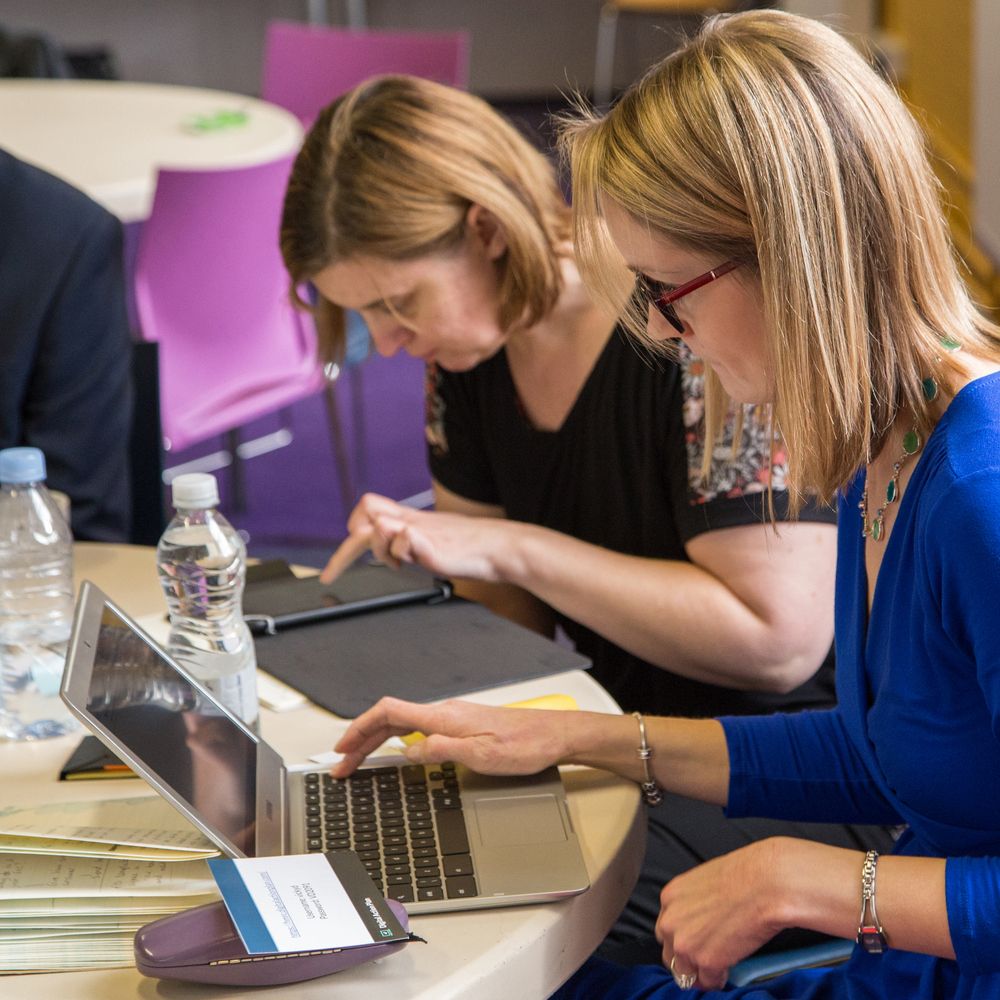I’ve just finished delivering two weeks of digital workshops on behalf of different organisations. Mostly, I really enjoy planning and delivering workshops. There’s a nervous rush in anticipation of the characters you might meet, and an opportunity to be creative in how you set up the session.
Workshops are an integral part of our Digital Action Plan program. They help us to understand the participants a little better, share some fresh ideas for discussion, and encourage them to identify the digital skills they may not already have, or would like to develop.
The Action Plan program supports people to identify and work on their individual needs, but the opening workshop is a team event. To deliver this element at a competitive price, at scale, these can’t be a totally unique agenda and content each time.
However, I’ve got to thinking that there are some common elements to delivering a successful workshop, which have to be in place. You may have the best and most exciting-sounding workshop agenda ever, but if the following elements aren’t right, then participants will struggle.
Purpose
It’s one thing coming up with lots of exciting exercises, clever presentations and discussion points. However, you need to be clear on the purpose of every section of the workshop, as well as the activity. Doing something collaborative with sticky notes is usually a bit of fun, but how will the output contribute to participants’ learning?
Timing
I’m a stickler for this, having been a participant in too many badly-run meetings and events. Participants will always turn up late – fact. But everyone will expect the workshop to finish on time, and you need to be aware that attention and energy will be tailing off well before the stated finish time.
People will never criticise you for finishing on time. But if the session overruns (particularly if they perceive this to be due to poor facilitation), that’s pretty much all they’ll remember. I use this planning grid to try and keep me true to the purpose of the workshop, the timings, and the activities.
Technology, only when it’s needed
Depending on the purpose of our workshops, we have varying dependencies on technology. I’m keen to encourage participants to be trying things out on their devices as we’re talking or presenting. However, some of the venues we are asked to attend have less than satisfactory wifi. For this reason, I tend to make sure we are not reliant on participants having to work online for the whole workshop.
In addition, there’s nothing more frustrating than tech for the sake of it. Interactive voting systems or video embedded in the presentation have their place, but use sparingly as any glitches on the day can be disruptive and annoying.
 Flexibility in content
Flexibility in content
This is the trickiest one for us to tackle, when planning and delivering multiple workshops. The content has to be relevant to the audience, but the purpose and overall messages are usually the same.
There is also any paired combination of up to six people who might deliver workshops of a similar format. Everyone needs to feel confident about the supporting material. This means presenting case studies and sparking discussions about which they feel knowledgeable.
I think we’re learning how to segment agendas and supporting decks. This allows different presenters to insert their favourite content – and more importantly, make sure it’s relevant to the participants.
Facilitation
I used to think this was all about having bags of energy, making people laugh and holding their attention. That’s still true to an extent, but the single most important activity is managing contributions from participants. This means nurturing those who are less confident, focussing the contributions of those who have a lot to say and challenging those who feel the activities or case studies aren’t applicable.
Environment
Check the temperature and open the blinds (if you’re lucky enough to have windows). Don’t forget to sort the lighting so people can see what they’re doing, and the slides. Oh and fruit, chocolate, drinks. These things go a long way to helping people feel comfortable and alert.
Take-aways
Participants always ask for copies of material they have found useful. For example, project planning grids, how-to guides, book recommendations and so on. I’m a little hesitant about issuing copies of slide decks for the sake of it – they rarely make sense on their own – and if people are inspired or curious about a particular case study or fact, there are other ways to find it.
How could we help you?
Looking to run a digital workshop or interesting in developing a Digital Action Plan? Talk to us informally about how we approach this kind of work, ballpark budgets and timescales – or just to help you refine your brief: email [email protected]

